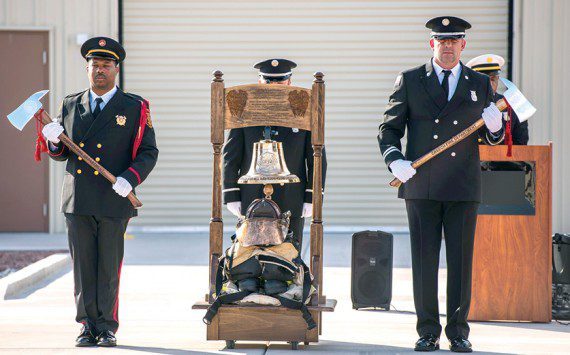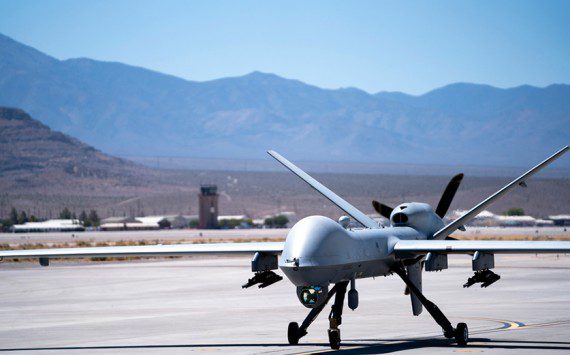It’s a common refrain today: People don’t read anymore.
Gone, it seems, are the days of printed newspapers, as subscriptions have steadily declined and many daily publications have disappeared. It seems all but certain that we live in an era of headlines and newsfeed snippets that offer information designed for the passing glance at phone screens and tablets.
To accommodate this trend, Public Affairs Airmen, like me, have long been trained to write simply and keep information brief and accessible. But I often ask myself whether reading has really lost its place in today’s military.
I would like to think that it hasn’t. The truth is that some stories are not best told in 150 characters or less. A recent example is that of the posthumous Medal of Honor recipient Tech. Sgt. John Chapman, an Air Force combat controller who was killed during the 2002 Battle of Roberts Ridge in Afghanistan.
There are many such stories of bravery and resilience in our service. Others are stories of everyday pursuits of excellence and purpose. Reading about them allows us to learn about who Airmen really are.
Innovation built on heritage
The Air Force is a service of the future. We were forged from a changing battlespace and have been charged with innovation from the beginning. Some would say the only consistent aspect of the Air Force is change.
But what guides this culture of progress and advancement? One thing that connects everything we do in the future is our shared heritage.
While some may assert that today’s Airmen don’t read beyond the boundaries of their social media timelines or chat boxes, reading about the mission and challenges of the past can be a pivotal aspect of personal development and education for the future.
This importance of reading is recognized at the very top levels of the Air Force leadership.
Last year, Chief of Staff Gen. David Goldfein noted in the introduction to his 2017 reading list that, “Our heritage of success is based on innovation, made possible by our diverse group of professional, dedicated and warrior Airmen. We must sharpen our understanding of nuclear weapons, deterrence, great power diplomacy and future warfighting technologies.”
Goldfein continued with a challenge to Airmen to take “deliberate steps toward expanding your understanding of this new national security environment, the threats we will face and the tools we will need to prevail.”
To guide and encourage reading, the Air Force’s highest-ranking member recommends useful and informative reading for the current generation for Airmen at all levels of their military careers.
The Air Force’s professional reading list is organized by airpower topics: leadership and decision making, war fighting, strategic environment, heritage, as well as technology and innovation. Each section offers so-called gateway, intermediate and pinnacle readings, allowing Airmen to progress their understandings and content scopes.
Challenging yourself
The problem, some will contend, is time. Understandably, between long work shifts, physical training, college education and family demands, it often seems impossible to carve out even more time — yet it doesn’t take much.
Reading is easier and more portable than ever before. Books are no longer confined to printed and weighty hardcovers. Nearly all of the material on the CSAF reading list is available for free on your phone and tablet via an Air Force-sanctioned library application. When reading is entirely impractical, downloaded audiobooks can continue the story during your commute or run.
So why not challenge yourself for the New Year? Take a look at the CSAF reading list today and look for a title that seems relevant to you. Visit the Whiteman AFB library or download a copy and begin reading — even for just 15 minutes a day. No more, no less.
Once you finish, form a good habit by picking another title off the list. Maybe expand your reading time to 30 minutes each day.
This is a small step that can greatly expand your knowledge of your Air Force’s story today. Don’t miss out on learning who we really are as Airmen. After all, if you don’t know the pages of the past, how will you write your own chapter tomorrow?
Editor’s note: The CSAF reading list is available at https://static.dma.mil/usaf/csafreadinglist/.











